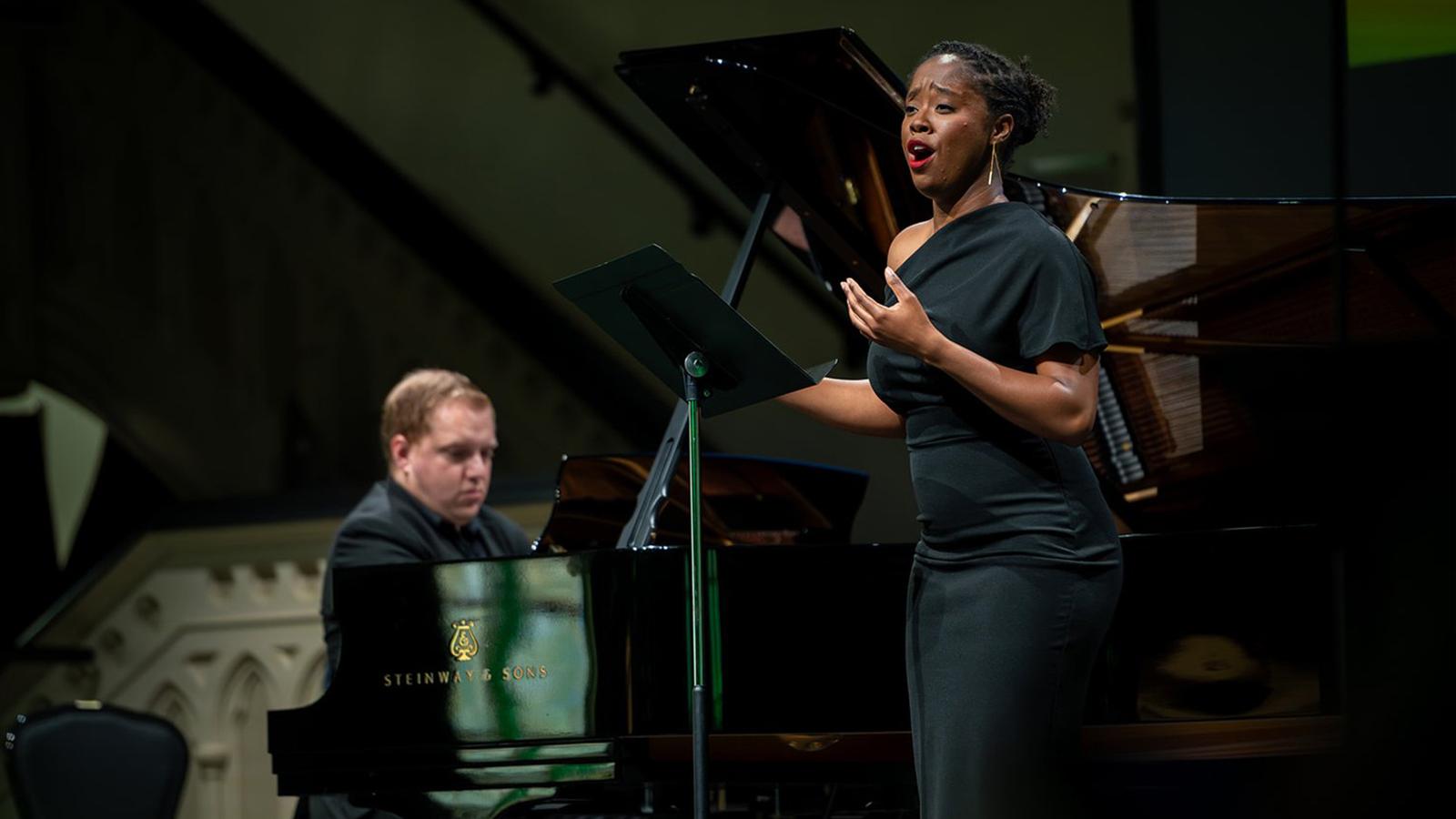The Other Side of Silence is written by and for people who use augmentative and assistive communication tools to speak
October 11, 2024

Opera is synonymous with the power of the human voice. The Other Side of Silence, a new opera produced by Opera Saratoga presented as a workshop performance at Rensselaer Polytechnic Institute on October 16 at 7 p.m., merges creativity and technology to include new voices and audiences in the artform.
The opera, created by librettists Mark Steidl and Katherine Skovira, D.M.A., an RPI Faculty Fellow in voice, and RPI Lecturer and composer Robert Whalen, D.M.A., is written by and for people who use augmentative and alternative communication tools to speak. The work’s integration of synthetic and acoustic voices immerses the audience in the lived experience of the nonspeaking community and explores how art and music can further equity, advocacy, and agency for people with disabilities.
The Other Side of Silence is inspired by Steidl’s life. Steidl is a gender non-binary person who uses an augmentative and alternative communication (AAC) device to talk with the world. These devices offer a limited set of voices to choose from, leaving many users, including Steidl, to go about their lives using a voice that does not feel like their own.
“This opera represents my gender identity, and the importance of intersectionality between gender dysphoria and ableism. As somebody who is often misgendered, I co-wrote this opera as a testimonial to — and in solidarity with — individuals who are misunderstood by their families,” Steidl said.
The upcoming performance of the opera’s first act is made possible through the partnership of Opera Saratoga, the Bergamot Quartet, and RPI, and will take place at the Curtis R. Priem Experimental Media and Performing Arts Center on the RPI campus. The performance is free and open to the public, with registration available online.
“Our voice is our identity,” said Whalen, a lecturer of music and conducting in the Department of Arts. “The Other Side of Silence gives voice to the vital question: How does technology help or hinder our ability to speak, to express ourselves, and connect with our communities and the world? I am grateful to all the collaborators on this project for the opportunity to showcase it at EMPAC, a space for performances that break down preconceived divisions between art and science, humanity and technology.”
The Other Side of Silence arrives during RPI’s Bicentennial year, a time to celebrate the university’s legacy of innovation and imagine its next century of connecting communities and modes of inquiry.
“RPI is the ideal place to bring this story to life. I am excited for the local community to join us and discover what is possible at the intersection of a timeless artform like opera and our contemporary world constantly being transformed by technological innovation, and that use of technology can enrich the human experience and combat ableism. It’s important for our students and the community at large to see that these voices should be heard,” said Skovira.
The workshop performance is part of the 2024 International Symposium on Assistive Technology for Music and Art and is funded by the New York State Council on the Arts.
The news media can arrange interviews with the opera’s creators in the days prior to the performance. On October 16, journalists are also invited to attend dress rehearsals from noon to 3 p.m. as well as the performance, which begins at 7 p.m.